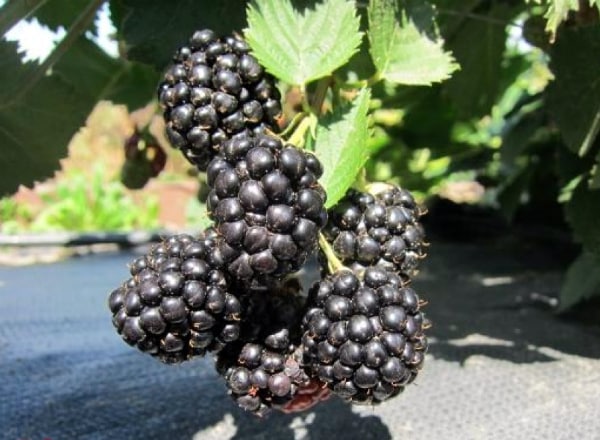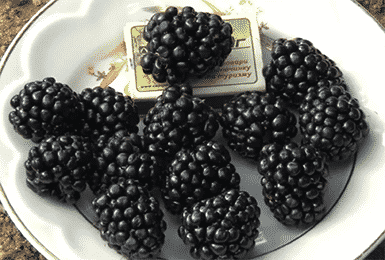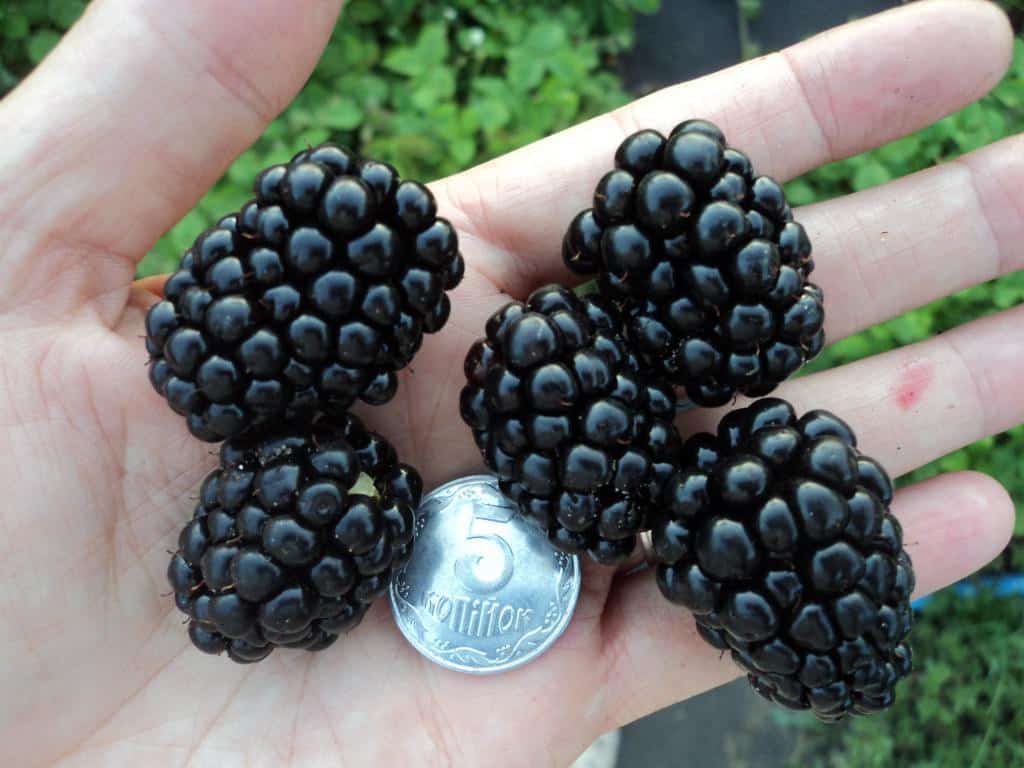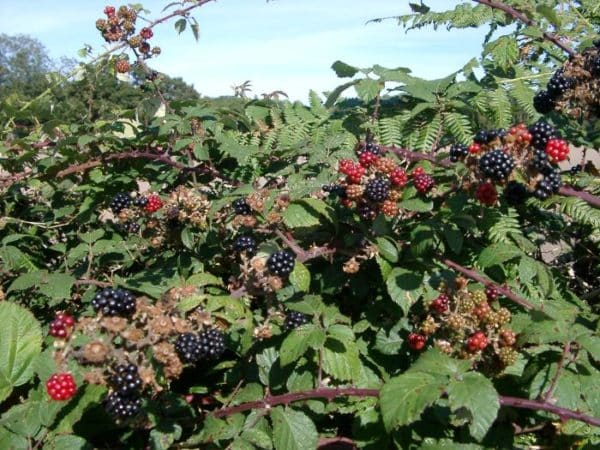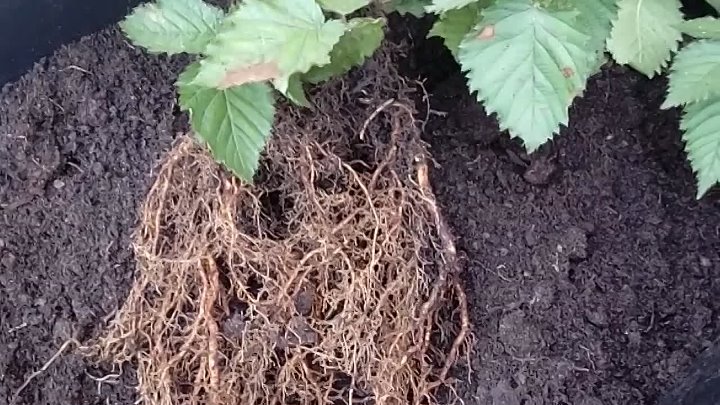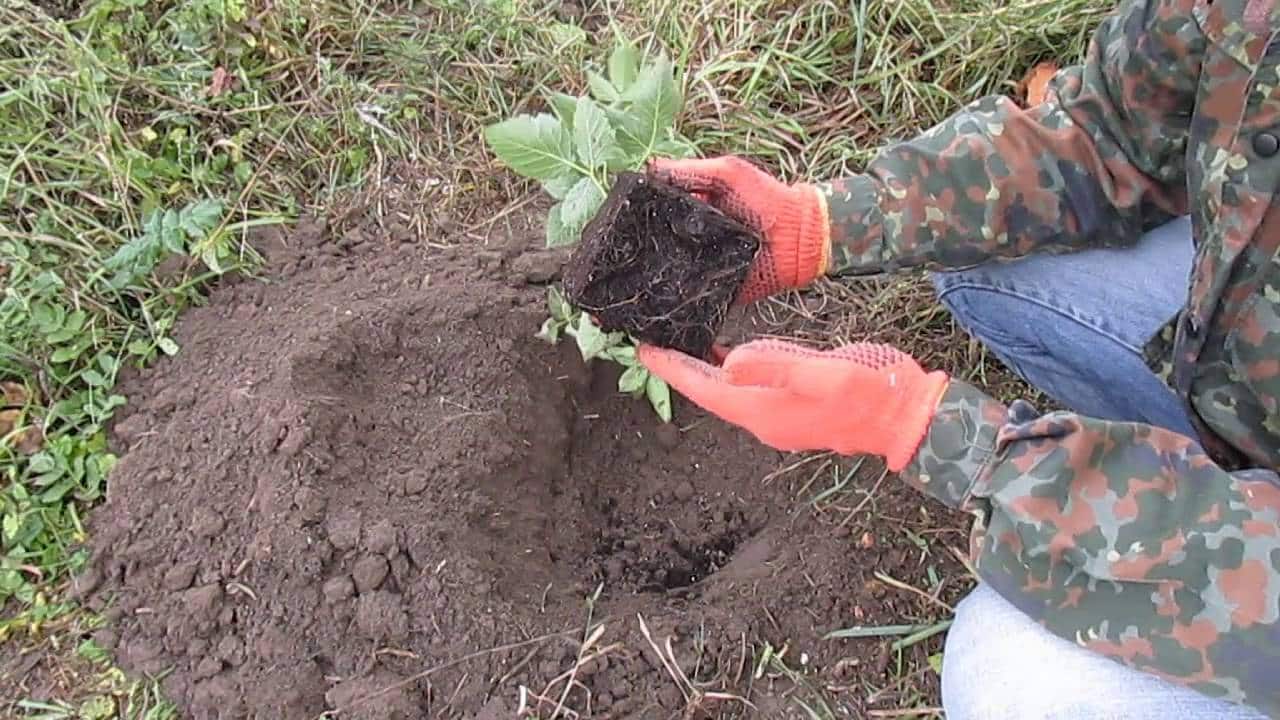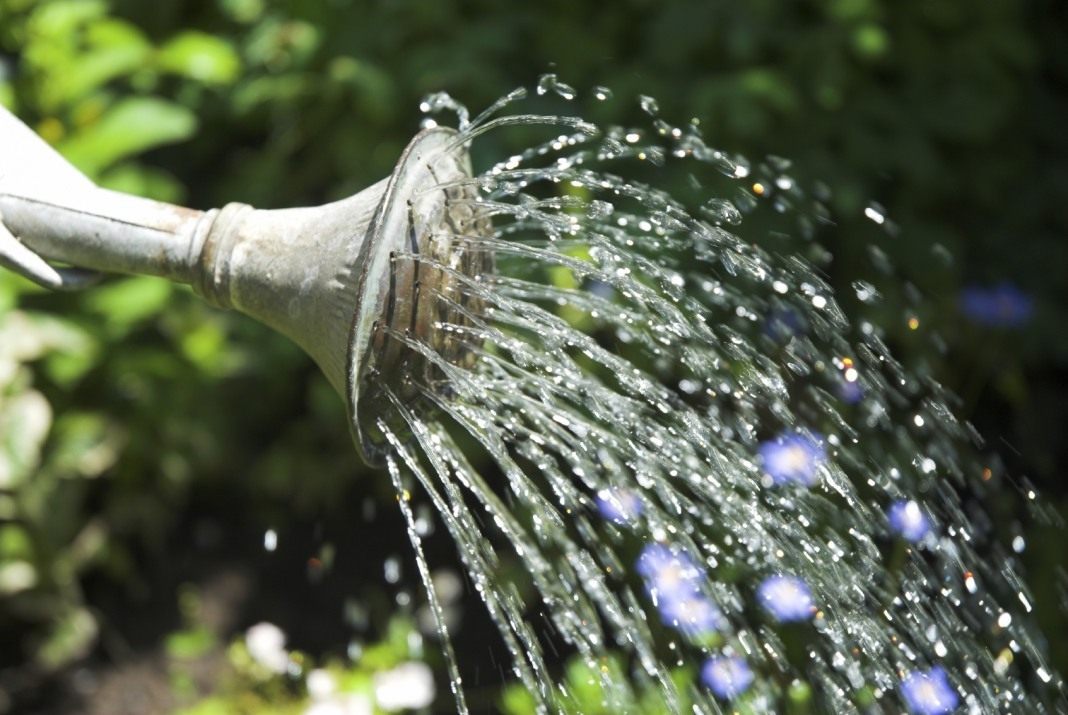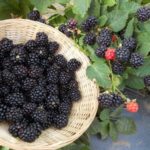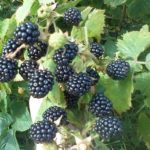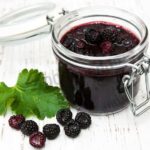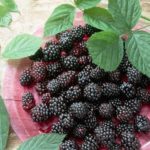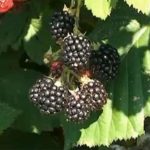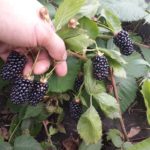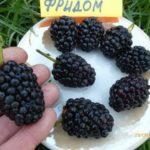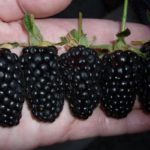If a person has fruit bushes and trees in his garden, and he doesn’t know what else to plant, blackberries are the solution to the problem. Tasty and juicy fruits on a low bush will appeal to all household members, without exception. The Triple Crown variety is one of the brightest representatives of blackberries.
- The history of the Triple Crown variety
- Advantages and disadvantages of blackberries
- General idea of the variety
- External parameters
- Bush
- Fruit
- Frost resistance and drought resistance
- Resistance to diseases and pests
- Tasting qualities and scope of application of berries
- Reproduction methods
- Landing technology
- Best timing
- Required soil composition
- Choosing the optimal location
- Preparation of seedlings
- Planting scheme
- Subsequent care of seedlings and adult bushes
- Watering and loosening the soil
- Feeding bushes
- Garter to supports
- Bush pruning
- Harvesting
- Preparing for winter
- Gardening tips: how to ensure high yields?
The history of the Triple Crown variety
Triple Crown translated from English means Triple Crown. Crown, as she is also called, was bred in 1996. Oregon breeders were involved in creating a new variety. Having passed the test, the variety entered the market as a seedling, where it quickly gained popularity. Three crowns has a unique taste. It is distinguished from other varieties by the size of the berries and the absence of thorns on the stem, branches and leaves.
Advantages and disadvantages of blackberries
The main advantages include:
- Incredible taste, juiciness of blackberry pulp.
- Large berry size.
- Long shelf life of collected fruits.
- Possibility of transportation over long distances.
- Blackberries do not become smaller as the fruits are harvested.
- Extended fruiting period.
- Resistant to direct sunlight.
Weaknesses of the variety:
- It is a dessert variety, so it produces about 10 kg of fruit per season.
- The bush needs protection, as it cannot survive the winter on its own.
- Not suitable for growing in regions with cold climates.
If Triple Crown blackberries were planted in the north, there is a risk that the person will not reap the harvest. Because it won't have time to ripen. Spring comes early, and so does winter.
General idea of the variety
You can recognize the Triple Crown among other varieties by its appearance. A brief description of blackberry leaves, fruits and branches will help the buyer make the right choice. This information will be useful to non-professional gardeners.
External parameters
This refers to the bush, fruits, shoots and leaves. Each part of the plant has its own characteristics. It is important to pay attention to the description of everyone.
Bush
Triple Crown has a semi-upright growing type of bush. In the first years of life, the shoot reaches a height of 2 m. Later, the stems grow up to 3 m. The variety grows very quickly. Blackberry leaves have a bright grassy color with serrated edges. The absence of thorns allows you to harvest without problems.
Fruit
As a result of the formation of a cluster, the berries resemble a bunch of grapes. Large in size, unlike other blackberry varieties. Individually, the berries reach 9 g. Ripe fruits are black with a shine. There are small seeds inside that are almost unnoticeable when consumed. The pulp is elastic and juicy. If the fruits are exposed to direct sunlight for a long time, do not bake.
Frost resistance and drought resistance
Resistance to winter cold is something that the culture cannot boast of. With the onset of the first frosts, the blackberries are wrapped so that the branches do not freeze and the predisposition to bear fruit is preserved for the next season. Triple Crown is drought tolerant.
Resistance to diseases and pests
Blackberries are susceptible to the following diseases:
- powdery mildew;
- gray rot;
- anthracnose;
- brown spot.
Pests include weevils, spider mites, aphids and raspberry beetles. Chemicals are used to combat diseases and insect infestations. Tobacco dust and ash are considered effective folk remedies.
The Triple Crown immune system protects against most diseases. Waterlogging of the soil, non-compliance with the rules of agricultural technology and low levels of nutrients in the soil are the main factors that provoke the development of diseases.
Tasting qualities and scope of application of berries
Ripe blackberries taste sweet. During consumption, you can feel the sourness. Juicy berries combine plum and cherry notes.
Reproduction methods
Blackberries take root well in the soil. The variety is propagated by root cuttings and upper parts of the stem. Branches can be apical or horizontal.
Landing technology
Proper planting is the key to obtaining a healthy bush with good fruiting. During disembarkation, simple rules are followed.
Best timing
Crown seedlings are planted in the ground in the spring. A prerequisite is that the soil must warm up well. To avoid late frosts, choose the end of April or the beginning of May.
Required soil composition
Loamy soil with good breathability will help accelerate the growth of shrubs. The future site where blackberries will grow is cleared of weeds. Superphosphate and compost are added to the soil.
Choosing the optimal location
Crown loves a sunny side, protected from the wind. The blackberry bed should be on a hill. For the best taste of the berries, the branches must have access to sunlight.
Preparation of seedlings
A healthy sprout for planting, 12 months old, with a developed root system. One plant should have 2 thick stems.
It is important that the blackberry root shoots are covered with buds.
Planting scheme
Procedure:
- A hole 50 cm deep is dug.
- A seedling is placed in the recess.
- The straightened blackberry roots are covered with soil.
- After compacting the earth, 3 liters of water are poured in.
- The surface of the earth can be mulched with peat or compost.
As soon as the sprout is planted, it needs to be trimmed. The top is removed and 20-25 cm is left above the ground. A distance of at least 1 m is left between planted bushes.
Subsequent care of seedlings and adult bushes
Even if a person is not a professional in the field of growing shrubs and trees, he must understand that any crop needs proper care.
Watering and loosening the soil
It is recommended to saturate the soil with moisture in the evening. It is preferable to use warm, settled water for blackberries. After the top layer of soil has dried, loosening is carried out.
Feeding bushes
Mineral and nitrogen fertilizers are applied in the spring, after the snow melts. Then they move on to potassium and phosphorus supplements. At this stage, nitrogen is also introduced, the amount of this substance affects the formation of the green part of the blackberry.
Garter to supports
Trellis are installed next to the bushes, which makes it easier to care for the plant and collect ripe berries. Thanks to this technique, it is possible to collect more crops. The recommended support height is 2 m, and the branch attached to the wire should be 1.5 m above the soil surface.
Bush pruning
The formation of the plant is carried out in the spring. The number of shoots of the bush is from 8 to 11. The fewer stems, the larger the blackberries will be.
Harvesting
The suitable period begins at the end of June and lasts until August. Varies depending on Crown growth region. During the season, Triple Crown produces about 10 kg of fruit from one bush. The ripening of the berries occurs gradually, so the harvest is wavy.
Preparing for winter
Medium-density agricultural fabric is best suited for wrapping. For greater effect, it folds in half. The material is replaced by any other.
Gardening tips: how to ensure high yields?
To ensure that the number of blackberry fruits pleases the gardener, it is recommended to strictly follow the rules of planting and caring for the plant.Experienced professionals advise adhering to the following techniques: planting density and tying to a trellis. In this case, the vine should have a horizontal direction.

